Forty Mid-Life Lessons
Well, I'm 40 years old today. I'm officially middle-aged. That must mean I've gained wisdom and have life lessons to teach, right? So, herewith, 40 lessons. Take them for whatever they're worth.
1. For all except a rather small minority of people on this planet, probably nothing is more important than finding a partner you can make a loving, respectful, happy union with, and then keeping that union together through thick and thin. Compared to accomplishing that, just about every other failure shrinks into insignificance; compared to giving up on that task, just about every other success does the same.
2. Read. Start young, and don't ever stop.
3. Write. Poetry, fiction, criticism, songs, essays, letters, scholarship, personal diaries...it almost doesn't matter what.
4. Don't let all the things Karl Marx got wrong prevent you from learning from what he got right.
5. Be a patriot, not constitutionalist. (That is, love your homeland, not your homeland's government.)
6. Have or adopt or foster or spend time with children. There's nothing better.
7. Find a church, and stick with it; the more time you commit to it, the more truth you'll find both within and without it, and plus the your fellow parishioners won't bug you so much after a while.
8. Occasionally visit other churches too. You shouldn't spend your life wandering from one house of worship to the next, but it is good to learn what other people are looking for; it might help you see your own choice more clearly.
9. People who won't even acknowledge the upside of protectionist or socialist economics are people who have allowed Ayn Rand or P.J. O'Rourke to convince them that forms of life have no historical or material grounding, but rather are just things individuals make up as they go along. They're wrong.
10. Much as it compromises my own profession, this would be a better world if there were more social and economic opportunities not tied to getting an official piece of paper from a black-robed, accredited intellectual like me.
11. Vote.
12. Just about everybody likes some sort of fluff; practically everyone is some sort of geek. This is not to say that every idiosyncratic preoccupation is equally worthy--not everything is relative. But if you argue against others' obsessions, argue respectfully, because you have them yourself.
13. Take a pay cut rather than work in a cubicle; turn down the promotion in favor of the office with a window.
14. Manners and rituals and customs and uniforms and holidays are all important secondary goods: not absolute, but not to be casually dismissed either.
15. Take breakfast seriously: learn to how to make waffles, biscuits, potato cakes, fresh orange juice, maple syrup, poached eggs, cinnamon rolls. It's the most important meal of the day.
16. Commuting to work on a bicycle is good for the environment, good for your body, and good for your soul.
17. While others study romantics and agrarians for their poetry, study them instead for their ideas.
18. Occasional goofiness and irresponsibility can be a good thing.
19. Context almost always matters more than content.
20. Ideas can't give offense; you can only choose to take offense at those who deliver them.
21. A little Luddism never did anyone any harm.
22. Nearly all "expert" nutritional advice is flawed.
23. If at some point in your life you learn (or even just pick up a little bit of) a foreign language, don't make the mistake of forgetting it.
24. Derek and the Dominoes, John Denver, the Commodores, Jackson Brown, Blondie, ABBA, Electric Light Orchestra, Parliament-Funkadelic, Lou Reed, the Clash, Supertramp, Earth Wind and Fire, the Bee Gees, Carly Simon--all this, plus the Rolling Stones, Neil Diamond, Michael Jackson, Elton John, the Eagles, Talking Heads, Linda Ronstadt, David Bowie, Pink Floyd, and James Taylor at the height of their creative powers? Don't listen to the haters; the 1970s were the greatest decade in American pop-rock radio ever.
25. Plant a garden.
26. Aristotle (and Confucius, and Rousseau, and Tocqueville) was right: we are discursive, communal beings, who find ourselves most fully through fellowship and service and role-performance with other human beings. So don't take that individualism crap too seriously.
27. If you have an addiction, don't hide it, don't think you've got it under control, and don't allow yourself to believe it's just a problem with your self-image or self-esteem; get yourself into a legitimate, faith-centered 12-step program, and stick with it.
28. Slow down; take that family vacation in the car.
29. Play on the computer if you must, but Dungeons and Dragons will always be better with pencils, graph paper, and some 20-sided dice.
30. Subscribe to a daily newspaper. Read it.
31. Shop locally, especially for food. If you go to a farmers market, get to know the farmers, and find out where the food you buy comes from.
32. Move to a neighborhood that has sidewalks or quiet streets, where you can walk to church or the grocery store or the kids can walk to school. Then do so.
33. Naiveté gets a bad rap. Second naiveté especially so.
34. Take traditions seriously enough to be able to argue with and reject them; don't just leave them alone to die.
35. You can (and should) be liberal without being a liberal.
36. It probably doesn't matter too much if your partner isn't all that interested in your personal hobbies or what you do at work or what you do with your other friends. It does matter a lot if you can't explain to your partner why those things are important to you...or if you can't appreciate in turn what your partner explains to you.
37. Brown bag your lunch to work.
38. A truly humble person can't be humiliated.
39. In the end, after all the ethics and commandments and tough choices and hard judgments, as important as they are, never forget what this passage of scripture says truly matters.
40. Have fun.
Oh, and happy new year, everyone.
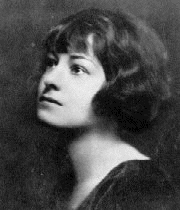 Alexander
Alexander  Listeners of radio’s Columbia Broadcasting System who tuned in to hear a Christmas Eve rendition of Charles Dickens’ A Christmas Carol were shocked when they heard what appeared to be a newscast from the north pole, reporting that Santa’s Workshop had been overrun in a blitzkrieg by Finnish proxies of the Nazi German government. The newscast, a hoax created by 20-something wunderkind Orson Wells as a seasonal allegory about the spread of Fascism in Europe, was so successful that few listeners stayed to listen until the end, when St. Nick emerged from the smoking ruins of his workshop to deliver a rousing call to action against the authoritarian tide and to urge peace on Earth, good will toward men and expound on the joys of a hot cup of Mercury Theater of Air’s sponsor Campbell’s soup. Instead, tens of thousands of New York City children mobbed the Macy’s Department Store on 34
Listeners of radio’s Columbia Broadcasting System who tuned in to hear a Christmas Eve rendition of Charles Dickens’ A Christmas Carol were shocked when they heard what appeared to be a newscast from the north pole, reporting that Santa’s Workshop had been overrun in a blitzkrieg by Finnish proxies of the Nazi German government. The newscast, a hoax created by 20-something wunderkind Orson Wells as a seasonal allegory about the spread of Fascism in Europe, was so successful that few listeners stayed to listen until the end, when St. Nick emerged from the smoking ruins of his workshop to deliver a rousing call to action against the authoritarian tide and to urge peace on Earth, good will toward men and expound on the joys of a hot cup of Mercury Theater of Air’s sponsor Campbell’s soup. Instead, tens of thousands of New York City children mobbed the Macy’s Department Store on 34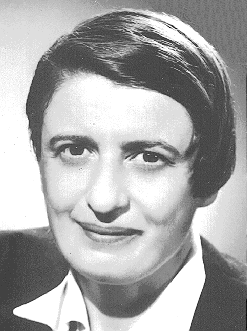 In this hour-long radio drama, Santa struggles with the increasing demands of providing gifts for millions of spoiled, ungrateful brats across the world, until a single elf, in the engineering department of his workshop, convinces Santa to go on strike. The special ends with the entropic collapse of the civilization of takers and the spectacle of children trudging across the bitterly cold, dark tundra to offer Santa cash for his services, acknowledging at last that his genius makes the gifts — and therefore Christmas — possible. Prior to broadcast, Mutual Broadcast System executives raised objections to the radio play, noting that 56 minutes of the hour-long broadcast went to a philosophical manifesto by the elf and of the four remaining minutes, three went to a love scene between Santa and the cold, practical Mrs. Claus that was rendered into radio through the use of grunts and the shattering of several dozen whiskey tumblers. In later letters, Rand sneeringly described these executives as “anti-life.”
In this hour-long radio drama, Santa struggles with the increasing demands of providing gifts for millions of spoiled, ungrateful brats across the world, until a single elf, in the engineering department of his workshop, convinces Santa to go on strike. The special ends with the entropic collapse of the civilization of takers and the spectacle of children trudging across the bitterly cold, dark tundra to offer Santa cash for his services, acknowledging at last that his genius makes the gifts — and therefore Christmas — possible. Prior to broadcast, Mutual Broadcast System executives raised objections to the radio play, noting that 56 minutes of the hour-long broadcast went to a philosophical manifesto by the elf and of the four remaining minutes, three went to a love scene between Santa and the cold, practical Mrs. Claus that was rendered into radio through the use of grunts and the shattering of several dozen whiskey tumblers. In later letters, Rand sneeringly described these executives as “anti-life.”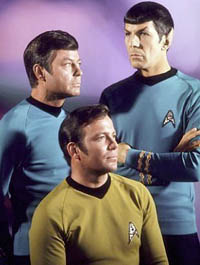 Mr. Spock, with his pointy ears, is hailed as a messiah on a wintry world where elves toil for a mysterious master, revealed to be Santa just prior to the first commercial break. Santa, enraged, kills Ensign Jones and attacks the Enterprise in his sleigh. As
Mr. Spock, with his pointy ears, is hailed as a messiah on a wintry world where elves toil for a mysterious master, revealed to be Santa just prior to the first commercial break. Santa, enraged, kills Ensign Jones and attacks the Enterprise in his sleigh. As  This ABC Christmas special featured Santa as a happy-go-lucky swinger who comically wades into the marital bed of two neurotic 70s couples, and also the music of the Carpenters. It was screened for television critics but shelved by the network when the critics, assembled at ABC’s New York offices, rose as one to strangle the producers at the post-viewing interview. Joel
This ABC Christmas special featured Santa as a happy-go-lucky swinger who comically wades into the marital bed of two neurotic 70s couples, and also the music of the Carpenters. It was screened for television critics but shelved by the network when the critics, assembled at ABC’s New York offices, rose as one to strangle the producers at the post-viewing interview. Joel  A year before their rather more successful Christmas pairing with John Denver, the
A year before their rather more successful Christmas pairing with John Denver, the  Undeterred by the miserable flop of the movie Can’t Stop the Music!, last place television network NBC aired this special, in which music group the Village People mobilize to save Christmas after Santa Claus (Paul Lynde) experiences a hernia. Thus follows several musical sequences — on ice! — where the Village People move Santa’s Workshop to Christopher Street, enlist their friends to become elves with an adapted version of their hit “In The Navy,” and draft film co-star Bruce Jenner to become the new Santa in a sequence which involves stripping the 1976 gold medal decathlon winner to his shorts, shaving and oiling his chest, and outfitting him in fur-trimmed red briefs and crimson leathers to a disco version of “Come O Ye Faithful.” Peggy Fleming, Shields and
Undeterred by the miserable flop of the movie Can’t Stop the Music!, last place television network NBC aired this special, in which music group the Village People mobilize to save Christmas after Santa Claus (Paul Lynde) experiences a hernia. Thus follows several musical sequences — on ice! — where the Village People move Santa’s Workshop to Christopher Street, enlist their friends to become elves with an adapted version of their hit “In The Navy,” and draft film co-star Bruce Jenner to become the new Santa in a sequence which involves stripping the 1976 gold medal decathlon winner to his shorts, shaving and oiling his chest, and outfitting him in fur-trimmed red briefs and crimson leathers to a disco version of “Come O Ye Faithful.” Peggy Fleming, Shields and 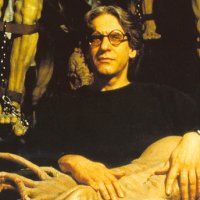 Faced with Canadian content requirements but no new programming, the Canadian Broadcasting Company turned to Canadian director David
Faced with Canadian content requirements but no new programming, the Canadian Broadcasting Company turned to Canadian director David 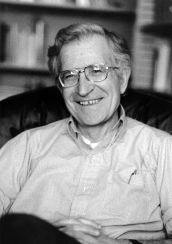 This PBS/
This PBS/
